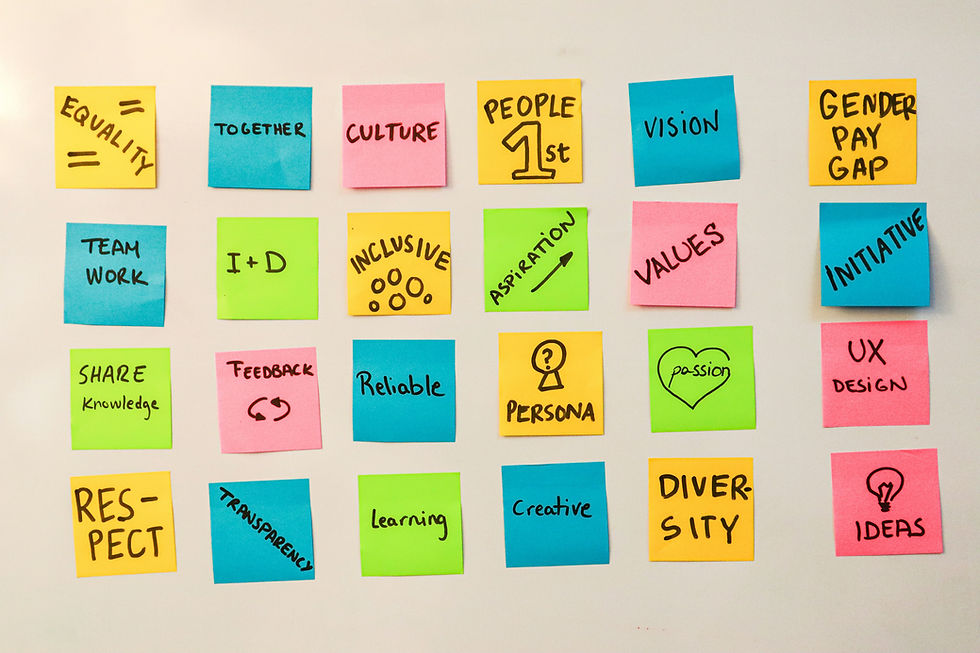Are personality tests just astrology for the office?
- helenjbutler
- Feb 3, 2020
- 3 min read
This morning I read an article in the New York Times with the headline ‘Personality Tests Are the Astrology of the Office’ (read it here if you're interested).
As someone who offers all new business clients the opportunity to take a DISC personality profile, I have skin in the game on this one, and you can often hear me evangelising about how DISC can revolutionise the way you communicate, both in the office and out of it.

But it’s true that they have their limitations. People are complex and their behaviour changes according to their circumstances, environment and the people around them. And using profiles in a way that was never intended by the creators i.e. putting people in boxes that limit their opportunities - is a scary and unjust side of the coin, that should have no place in modern workplaces.
The way I describe these profiles to my clients is that they give you the self-awareness and shorthand to navigate communication blocks and tricky relationships that begins with how you behave and communicate, not other people. There are things within our control, but other people and situations, are not. When you’re self-aware enough to understand how you behave when you’re under pressure, and what you find motivating, you can regulate yourself so much easier. This is often enough in itself to change things exponentially, but when you add in a dimension of understanding those things about the people you work with, that’s when revolution can happen.
Because if you know that your client needs to be inspired with big ideas, and that facts and figures turn them right off, then you know how to shortcut that process to move things forward.
And likewise, if your colleague needs comprehensive facts and figures before they can get on board, then you know that the same presentation isn’t going to work for both of them.
If you’re sending an email to some personality styles, they’ll respond better with a conversational style, asking them about their lives and referring to whatever’s happening in the world right now. And other types just want to get to the point, as quickly as possible, with no small talk. One isn’t more right than the other, and we’re all capable of responding to both emails, but if you want to build relationships and trust with people, knowing their preferences and communicating with them in their favoured way, is an easy and reliable shortcut.
It really is as simple as that. There are no limiting factors here - all personality types are capable of doing a brilliant job of virtually any task or job role, it’s just that they’ll all approach them from a completely different angle.
Some types are more naturally collaborative than others, and some are more enthusiastic leaders than others, but that doesn’t mean that one will be a better CEO than another – just look at Elon Musk and Bill Gates to see that playing out in real life.
So as always, knowledge is power, but a little bit of knowledge in the wrong hands is a dangerous thing, and it’s up to us all to use this information in the way it was intended: i.e. to increase awareness of your own behaviour preferences and clues to other people’s. They’re not tools to brand and limit people.
BTW, I’m an SI type in DISC, and in Myers Briggs I’m an INFJ...







Comments